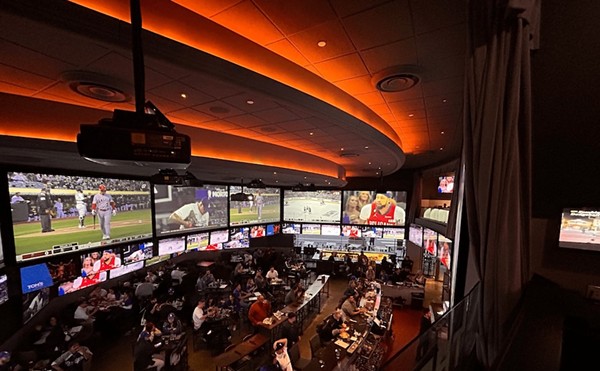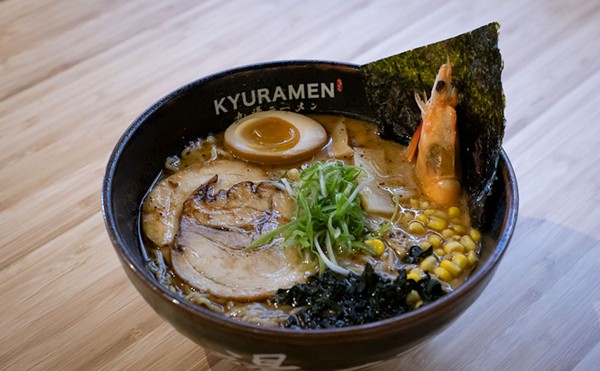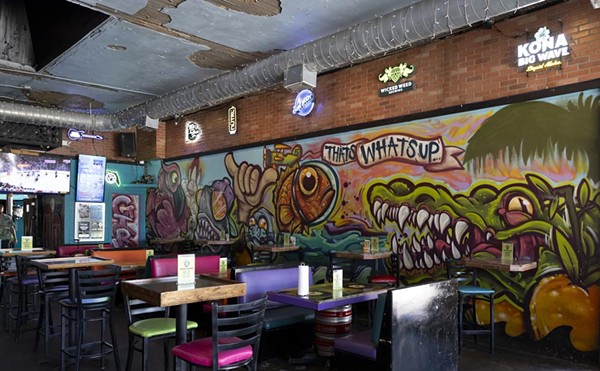In the seven or so years I've been working as a restaurant critic, I've studiously avoided the word "tasty." It's a trivial, even silly thing, but my self-imposed ban on the word reminds me to steer clear of pat, empty descriptions and strive for something better. Restaurant criticism lives and dies on the use of adjectives, and sometimes the lexicographical cupboard feels a little bare, but I try to reach for more expressive and lively words than "tasty," "good" or, God forbid, "yummy."
Lately, I've been giving a lot of thought to the word "ethnic," one of the workhorses in my stable of adjectives. Writing about ethnically diverse restaurants makes the word indispensable. But the term is increasingly useless.
In mainstream white America, ethnic food is foreign food from the Third World — you know, all that spicy, odd, exotic stuff prepared by brown, yellow or black people. But in case you haven't noticed, mainstream America is increasingly less white. That's particularly true in Florida. According to the Florida Department of Education, there are more than 200 languages spoken in this state.
Given changing demographics, what's called ethnic depends on who's doing the labeling. One person's ethnic food is another's home cooking. Where do immigrants from Bangalore or Taipei go for ethnic food? Sizzler?
European cuisines aren't thought of as ethnic foods because they're so assimilated into American life. But food from these cultures represents particular ethnic groups just as much as your local Vietnamese or Ethiopian restaurant does.
This isn't politically correct hand-wringing. The term is ineffective because its meaning is too broad and sets up a false dichotomy between ethnic food and everything else. Trouble is, except for assembly-line-extruded fast food and dishes far removed from their ethnic origins (tuna casserole, sloppy Joes), there is no "everything else." It's all ethnic food.
I'm not the first person to question the validity of the word. Jim Leff, founder of Chowhound.com, dispensed with the term several years ago. Here's a quote from an interview he gave to Travel+Leisure back in 2005:
"I mean, look at French bistros. We don't call French food ethnic because of a snobbery that assumes French food is real dining. We think of ethnic food as charming little places that are surprisingly good for those who can't afford high prices."
What we really have is a division of old ethnic and new ethnic. Old ethnic cuisines are those that have become so assimilated that they're viewed as "American." Hamburgers, french fries, hot dogs, pizza and spaghetti and meatballs, all foods with ethnic origins, are as American as apple pie, which, it turns out, has its roots in the ethnic Anglo-Saxon tribes of medieval England. There was a time when the use of fresh garlic among Italian immigrants in the United States was considered a display of Old World ethnicity. Now, it's only a few June Cleaver types in the Midwest who favor garlic powder over the real thing.
New ethnic is the food of recent arrivals from places other than Western Europe. Used this way, ethnic is a stand-in for "other." The term has the slight odor of cultural supremacy because it's a way to distinguish "us" from "them." But increasingly, they are us.
So what's a food writer to do? If everything short of American fast food is ethnic food, why bother to use the term at all? What we need is a new word. Regional food? Cuisine of the world? Any ideas?
[email protected]

















